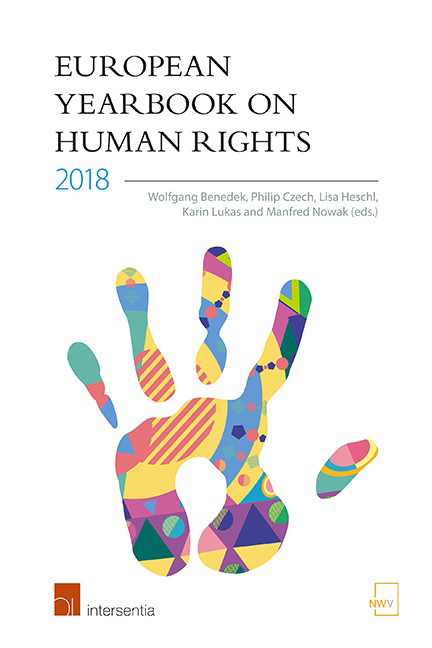Editors’ Preface
Published online by Cambridge University Press: 31 January 2019
Summary
Dear readers,
The year 2017 has been a difficult one for regional human rights protection in Europe. The Council of Europe (CoE) was put under financial stress by the suspension of the Russian financial contributions and the reduction of those from Turkey; the European Union (EU) was struggling with reforming its migration policy and proceeding with the crisis concerning the rule of law in Poland; and the Organization for Security and Cooperation in Europe (OSCE) under Austrian chairmanship, only after very difficult political negotiations, appointed three key positions, among them the director of the Office of Democratic Institutions and Human Rights (ODIHR) and the Representative on Freedom of the Media.
All this and much more is analysed in the new European Yearbook on Human Rights 2018 (EYHR). While the struggle for human rights and the critical review of topical human rights challenges have been at the core of the EYHR from its inception, the Yearbook itself underwent some important changes last year. From 2018 onwards, the EYHR will be published by Intersentia, which means that all contributions are now subject to a double-blind review procedure. This allows us not only to ensure the high academic standard of the EYHR, but to improve it still further. It should be noted that we, the editorial team, when selecting the final contributions pay attention not only to the highest academic standard and gender balance, we also believe in ‘ academic diversity ‘, encouraging, in particular, excellent young scholars to submit their contributions and publish them alongside renowned academics in the field of human rights. Additionally, we consider the mutual informing between academia and practice as crucial to reflect in a comprehensive way on human rights developments in Europe. Accordingly, as in previous years and complementary to academic debates, the EYHR 2018 provides the reader with first-hand information from the inside of relevant institutions on the developments in the field of human rights protection in Europe in 2017.
As in past years, the European Yearbook remains structured around current human rights challenges that the European institutions, namely EU, the CoE and the OSCE have been particularly confronted with in the year 2017.
- Type
- Chapter
- Information
- European Yearbook on Human Rights 2018 , pp. vii - xivPublisher: IntersentiaPrint publication year: 2018

